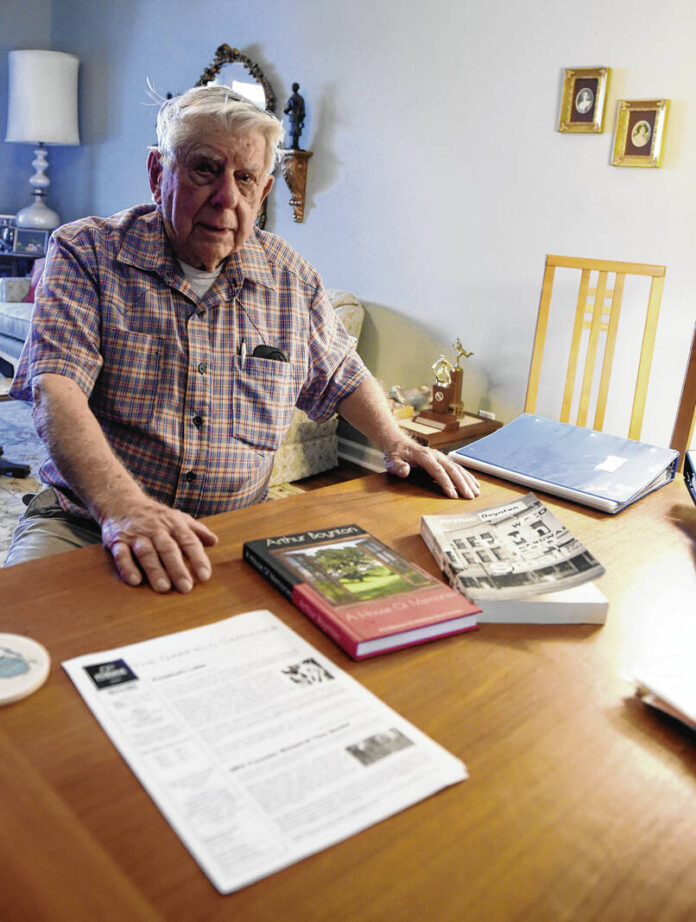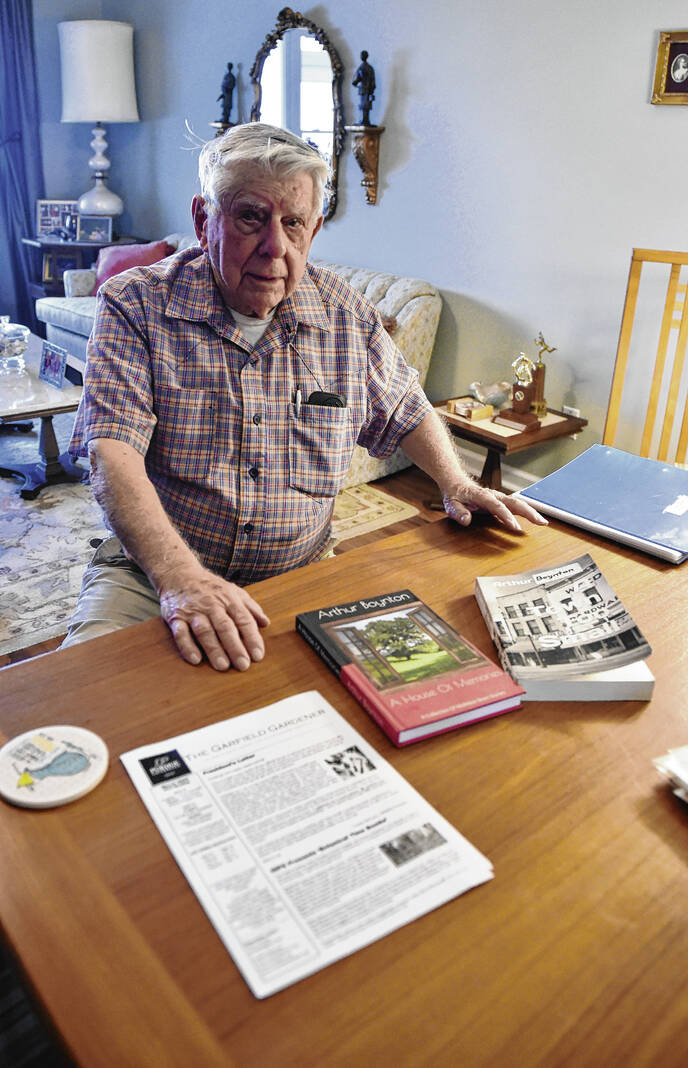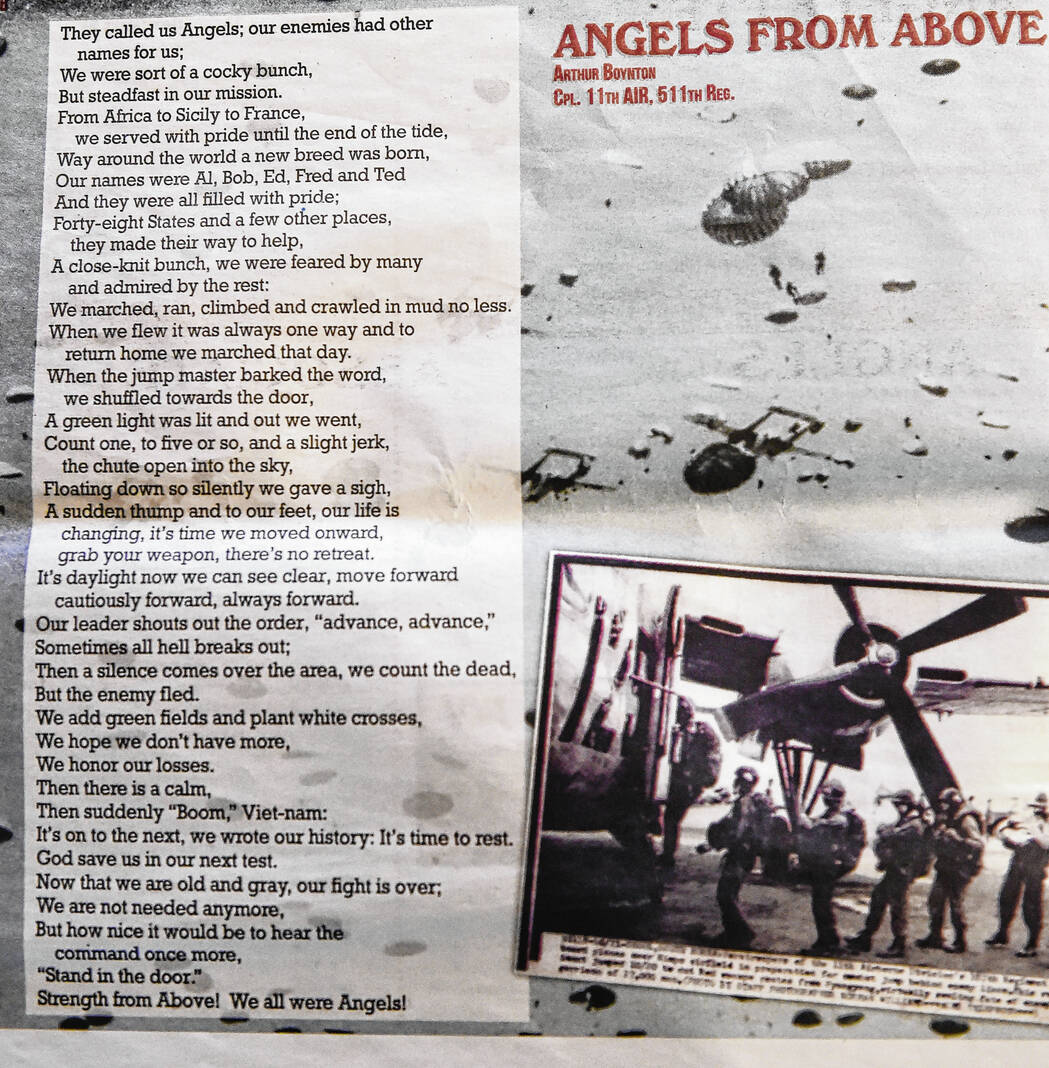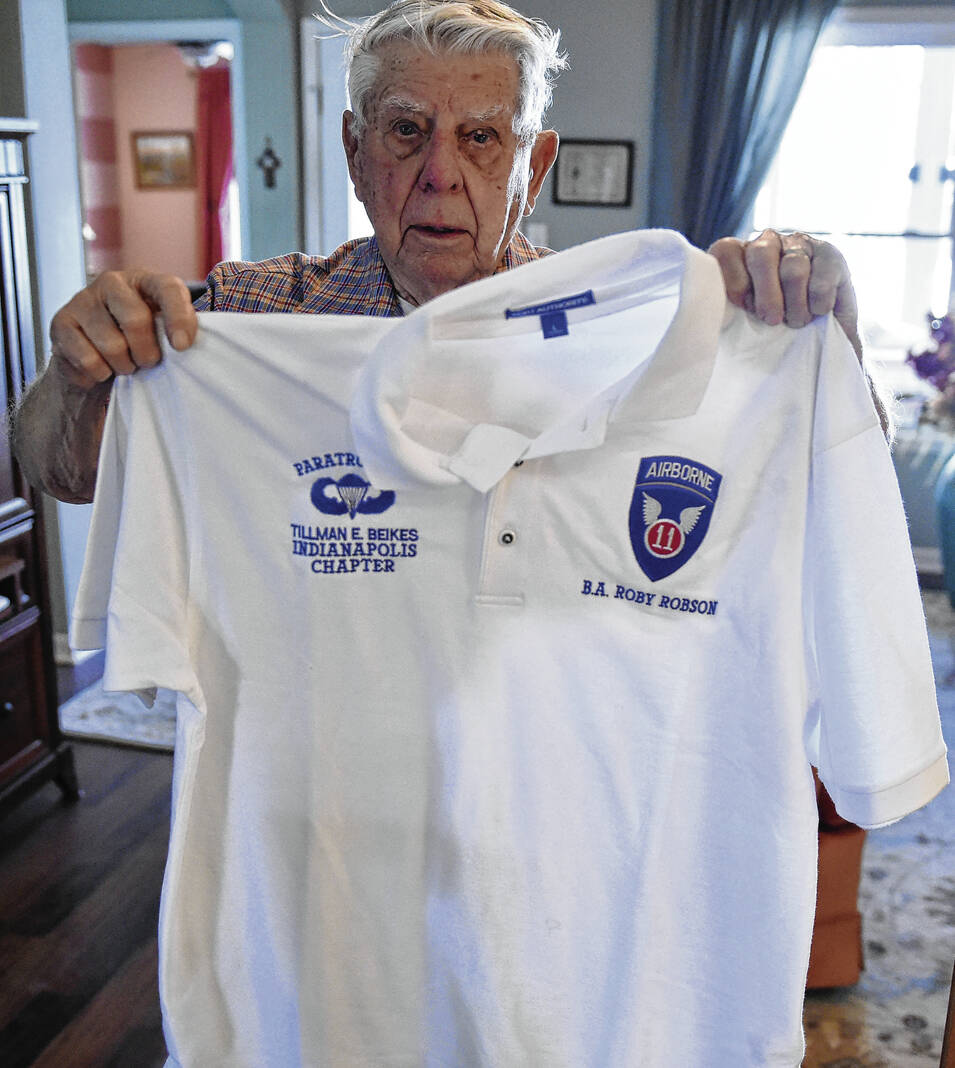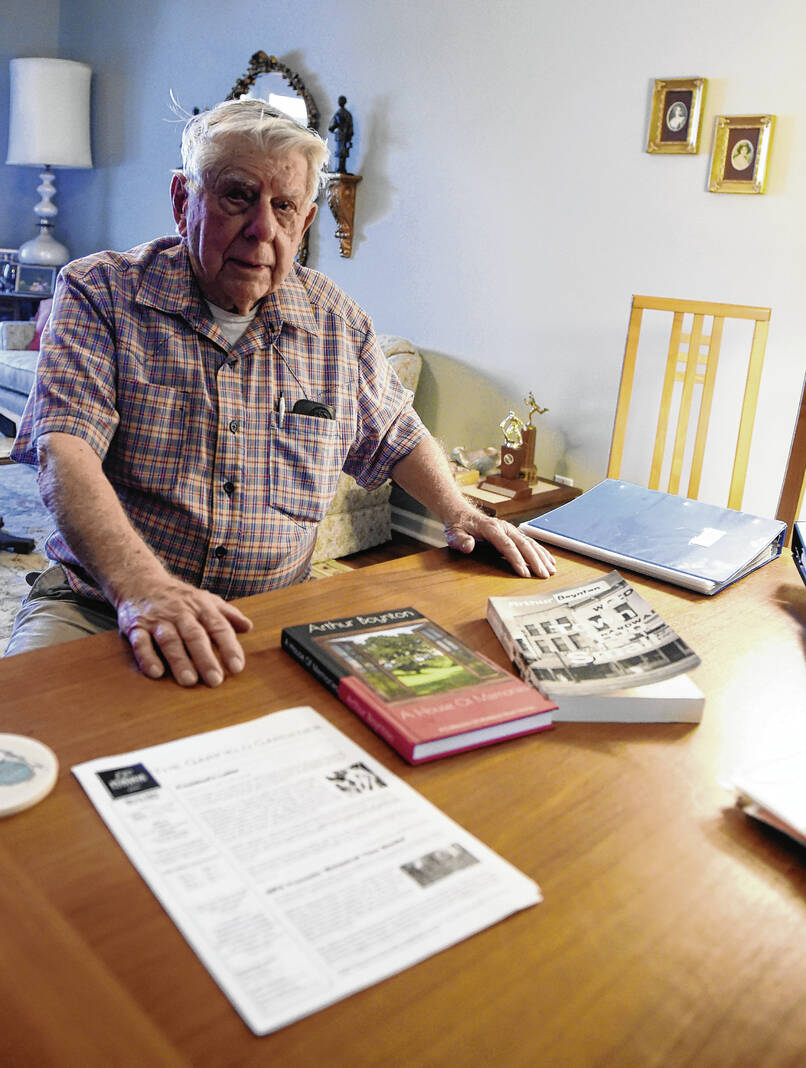The wariness of an old paratrooper can be felt line by line.
Now that we are old and gray, our fight is over;
We are not needed anymore,
But how nice it would be to hear the command once more,
‘Stand in the door.’
Boynton Robson wrote those words in a poem titled, “Angels from Above,” a tribute to the men who willingly leap from airplanes in order to protect the country. He intimately understood what it took to make that leap — during the Korean War, he was part of the 11th Airborne Division of the U.S. Army.
Putting the experience into words was only natural for the Greenwood resident.
Robson has found joy in poetry and prose, having written two published books and contributed more pieces over the years, from history to sports guides. Doing so has been a natural extension of his love of the written word.
“I’ve been writing little stuff for quite a while, nothing big-time,” he said. “It passes the time. I’ve always enjoyed reading, and these are just my thoughts and things I’ve come up with.”
Robson has lived a varied and diverse life. His military service with the Army took him to Japan and Europe in the time before and during the Korean War. While serving, he was part of multiple sports teams, from baseball to football to track. His team with the 511th Regiment even won the regimental championship.
Sports continued to be a core part of his life. After his service, he worked mostly in sports sales. When he wasn’t working, Robson was an official for high school, college and professional sports, from boxing to basketball. He played hockey for six decades.
“I’ve been in sports all my life,” he said.
Despite all of his interests, Robson has been writing for years. Back in the 1960s, he put together a manual teaching kids the foundational skills of basketball. As a Master Gardener, he would pen columns for the Garfield Park Master Gardeners Club as the historian, including a multipart piece on the history of the park. He’s currently assembling those pieces into another book.
But after retiring nearly 20 years ago, he devoted more time to his poetry and prose. He goes by the pen name Arthur Boynton — a combination of his middle and last names.
His first book, started 10 years ago, is “A Town Too Small.” The story focuses on a small Indiana town, Craig, following World War II, as those who served and their families experience the prosperity of the post-war boom. The idyllic life was interrupted as the country bounced back into conflict with the start of the Korean War.
A second book, “A House of Memories,” is a collection of short stories and poems focused on life in the Midwest.
The ideas for his stories come from his everyday life. For example, the first entry in the collection is a tale called, “My Vacation with Mrs. Robinson,” inspired by vacations he and his wife used to take to Myrtle Beach, South Carolina.
“I would go out and fish. I didn’t care if I caught anything, I just wanted the experience. So I decided to write a fable, and Mrs. Robinson is the fish I write about,” he said.
Even at age 93, Robson remains active around the community. He goes to the gym multiple times a week to keep his body strong. Every Wednesday, he meets with other paratroopers for lunch at Skyline Chili. Their group, the Tillman E. Beikes-Indianapolis All-Airborne Chapter of the 82nd Airborne Division Association share stories, talk about their families and share camaraderie.
Robson still jumps out of planes, on special occasions. He went skydiving on his 70th, 80th and 90th birthdays — he’s planning to make his last jump on his 100th.
“I’ve got one more to do, and I plan on making it,” he said. “I’m working towards it.”
And of course, he still writes. He’s assembling his essays on gardening that he’s penned. He has three or four stories going, and he wants to write a story about the reasons America entered World War II, and has ideas about the resistance in France during the war. Robson would also love to do a sequel to “A Town Too Small” and return to the fictitious Craig, Indiana.
“I write a few things on it, and let it sit, then decide to do this or do that,” he said.
In February, he was compelled to put his thoughts on the struggle of the Black community into words. Titled “When the River Runs Dry,” he wrote:
“Child to child, man to man, the cry is heard all over the land. Days turn to nights and nights to days, when will we ever learn to mend our ways? When the river runs dry.”
The words are poignant, Robson’s way of expressing what he’s seen throughout his long life.
“I was sitting here one day thinking about that, and that’s what I came up with,” he said.


